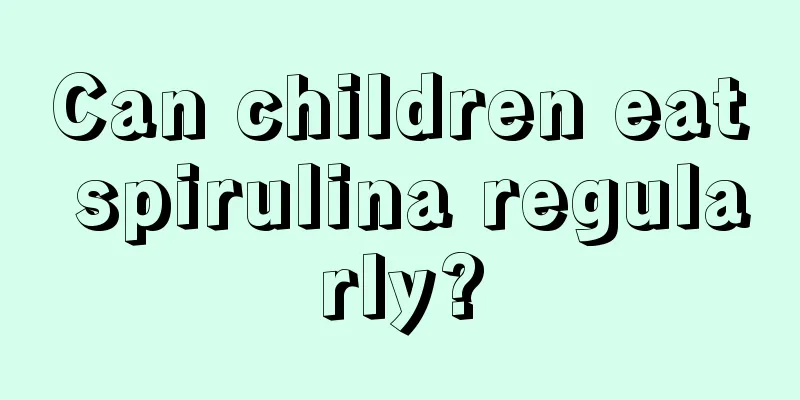Symptoms of excessive blood lead levels, normal functions are affected

|
Excessive blood lead means that the lead content in the blood exceeds the normal standard. Excessive blood lead will affect the healthy growth of children and affect the nervous system. Children will experience symptoms such as hyperactivity, drowsiness, and slow reaction. In terms of digestion, they will experience nausea, diarrhea and other symptoms. 1. Symptoms of excessive blood lead 1. Nervous system: irritability, hyperactivity, short attention span, aggressive behavior, slow reaction, drowsiness, movement disorders. Severe cases may include mania, delirium (a temporary neurological disorder characterized by confusion, bewilderment, incoherent speech, restlessness, agitation, and often delusions or hallucinations), visual impairment, and cranial nerve paralysis. When the blood lead level is around 1000 ug/L (4.826umol/L), symptoms of lead encephalopathy such as headache, vomiting, convulsions, coma, and even death may occur. 2. Digestive system: abdominal pain, constipation, diarrhea, nausea, vomiting, etc. 3. Blood system: microcytic hypochromic anemia, etc. 4. Cardiovascular system: hypertension and arrhythmia. 5. Urinary system: aminoaciduria, glucosuria, and hyperphosphaturia in the early stage; in the late stage, patients may experience symptoms of renal failure such as azotemia. 2. Impact 1. Once children suffer from hyperleademia, they will experience symptoms such as loss of appetite, nausea, vomiting, diarrhea, constipation, and indigestion. Excessive blood lead levels can damage the nervous system of children who are in the growth and development period, manifesting as irritability, fatigue, laziness, drowsiness, etc. Older children may show dullness, inattention, poor memory and comprehension, anemia, etc. 2. Growth retardation and reduced resistance to infection are also common manifestations. However, it must be noted that high leademia in children is often chronic and sometimes does not show any symptoms, but this does not mean that it does not cause intellectual damage to the child. |
<<: The harm of excessive blood lead affects the normal development of children
>>: What is scarlet fever? You should know these symptoms
Recommend
What should children eat if they are calcium deficient?
The phenomenon of calcium deficiency in children ...
Can babies with cerebral palsy be amused? This is the truth!
Babies with cerebral palsy have relatively low fu...
Prevention, control and treatment of myopia among students
The incidence of myopia among students is getting...
New parenting concept: Be a new mother who shows weakness
Lack of responsibility, inability to be self-reli...
Nursing after circumcision of children
Phimosis is a disease that is currently more seri...
What to do if your eight-month-old baby has a stuffy nose
It is normal for children to catch a cold. Someti...
How to control childhood obesity
Everyone knows that although chubby children look...
What is the appropriate medication for bronchial asthma in children?
Children are prone to bronchial asthma. After bec...
What to do if there are particles of milk in the newborn's stool
Many newborns have granules of milk curds in thei...
Baby cough and asthma massage
Cough and asthma is a common disease among babies...
Can children with autism speak?
Some people think that only humans have their own...
Why do four-year-old children become sleepy?
Children need more sleep than adults, and if thei...
What should I do if my baby doesn’t sleep well in the second half of the night?
Many mothers are complaining that their babies ha...
What should I do if my baby coughs badly while sleeping?
We all know that coughing while sleeping is very ...
What to do if your baby has a fever and cold hands and feet? The correct way to reduce fever
Winter is the season when babies are prone to cat...









